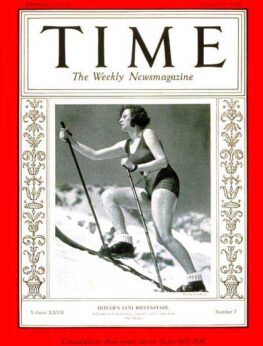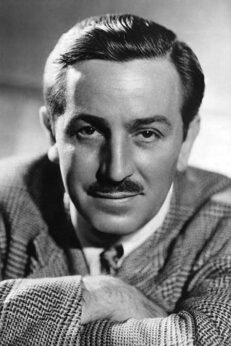
BURBANK, Calif.—If Project 2025 isn’t explicit enough about its intent to institute fascism in America on Day One of a reprise of Donald Trump’s presidency, starting January 20, 2025, some new plays now world premiering in this city help to spell out the implications. These bold productions look at the rise of fascism and anti-Semitism in pre-war Germany and its effect on art, as well as at the artists who resisted or—in some cases—collaborated.
The plays are part of a larger concept called “Reflections on Art and Democracy,” created to raise awareness about the current rise of fascism and anti-Semitism in the U.S. and around the world, the power of art and design to resist them, and the expression by visual and performing artists to promote democracy. Remaining events in this schedule include “Maria Kipp (1900-1988): Handweaver Ahead of Her Time,” an Aug. 12 webinar hosted by Open Fist Theatre Company; and a Sun., Sept. 1, illuminated lecture on propaganda at the Skirball Cultural Center presented by theatre dybbuk, which will feature a live recreation of portions of Orson Welles’ famous 1938 radio broadcast of The War of the Worlds.
In Crevasse by Tom Jacobson, enjoying its world premiere, filmmaker and Nazi propagandist Leni Riefenstahl meets Walt Disney in Hollywood. It’s a co-production between Son of Semele and The Victory Theatre Center running through Aug. 18 at the Victory Theatre. Jacobson’s dramatic presentation on the history of the famous Bauhaus School, performed in two parts, is the other theatrical piece of the city-wide “Reflections.” I’ll be reviewing that doubleheader, seen the same weekend, shortly.
The last play I saw at the Victory was last year’s powerful Home Front, about an African-American U.S. Navy man returning home after World War II and facing the same racism he had experienced before the war. Historians argue that the Nazis borrowed much of their racist policy against miscegenation and universal civil rights from laws on the books in Jim Crow America (and not just in the South).
And while I am reminiscing about plays I’ve seen, I could mention that playwright Tom Jacobson is no stranger to me either. Back in 2018, I reviewed his trilogy about the Bimini Baths, a historic bathhouse in L.A., Mexican Day, Tar and Plunge.

Victory’s artistic director Maria Gobetti welcomes Son of Semele artistic director Matthew McCray to direct Crevasse. In 1938, renowned German filmmaker Leni Riefenstahl toured the United States on a victory romp following her award-winning film Olympia, about the 1936 Olympics in Berlin, for which she was seeking American distribution. In Detroit, the publicly known anti-Semite Henry Ford gave her a tour of his factories. Once she arrived in Hollywood—most of whose studios were run by Jews—only one studio head would meet with her: the non-Jewish, but cautious Walt Disney. She disparages this encounter as “an appointment with a mouse.”
“In November 1938 there was public outcry about Germany, but full details were not yet known,” says McCray. “This was just after Kristallnacht, [three] years before the U.S. officially entered the war. There is a perplexing draw toward autocracy again, so it’s important to explore issues around power, and the conflicting influences of money and ethics. In Crevasse, the comparisons between the work and ideals of filmmakers Disney and Riefenstahl provide a compelling examination of business and power through film.”
A two-hander, Ann Noble and Leo Marks star in this well researched story of betrayal, formal esthetics, Nazi propaganda, and cartoons. But the two actors portray six different characters, so convincingly that at a casual glance, one might mistake them for different actors entirely except that we watch the quick changes of clothing happen before our eyes. Ms. Noble not only plays the stylish, seductive Riefenstahl, but also Lotte, a German-Jewish woman married to an Aryan Jewish public relations man, and the mythical character of the fatal Lorelei from old German folklore and song. Mr. Marks not only plays that PR guy, Ernst Jaeger, but also the Nazi propagandist Joseph Goebbels and, in a marvelous transformation scene, once Riefenstahl arrives on the West Coast, the youngish, Cardigan-clad Walt Disney. The whole staging of this complicated story takes only about 90 minutes without intermission.
The audience received Crevasse warmly on opening night (July 26), not only for its historical value and for the ever-evocative anti-Nazi theme, but for the actors’ versatility, dexterity, and panache.
Riefenstahl was clearly miffed that only Disney would see her, but for a brief moment, they seem to have landed on a mutual interest. Through her influence with the Führer, she might be able to wangle exclusive rights for Disney to distribute not only his own films in Germany but those of other studios (if their product passed ideological muster, of course). In exchange, Disney could arrange for distribution of Olympia in America, which he had not seen yet, but he did admire her Triumph of the Will for its cinematographic invention. In the meantime, Disney could learn something from the German filmmaker’s revolutionary techniques, and Riefenstahl—who admired Snow White as “so Teutonic” with those “seven little Jews”—could absorb something from Disney about camera innovations, emotional appeal, and animated sophistication from Disney.
We are present for Disney’s grand tour of his studio complex for Riefenstahl alone. Through the magic of swiveling panels, a small stage is expanded into a whole Hollywood plant with its different spaces for sculpture, drawing, screening, and more. She can’t help noticing that at no time does he actually introduce her to any of Disney’s workers. It’s as if he had sent them all home for the day. This Republican voter, a self-admitted anti-Communist, is clearly sensitive to the bad press he might receive if it became known that he had hosted Hitler’s star propagandist, and refers to his Jewish and union-organizing workforce and a potential boycott. Disney tries her out with lines as the Blue Fairy from an upcoming film, and as he recites the story of the Sorcerer’s Apprentice, she dances and mimes it to hilarious effect.

Disney shows her episodes from his forthcoming full-length animated feature based on classical music (much of it, he points out, is German!) So far it’s just a collection of episodes that he doesn’t have a title for, and she muses that in Germany such a work of varied moods and characters might be called a “Fantasia.” He also explains how he imagines opening up a few rides and amusements for families to enjoy, and she presses him to think bigger—a whole city, as it were, devoted to his animated world! He balks when the German presents him with an English version of Hitler’s Mein Kampf, the book she lives by word for word: Following the precepts of this book, she claims, the German people will live in “the happiest place on earth.”
Interviewed later, Jaeger says that after her visit to Disney, Riefenstahl had recounted to him everything they talked about, though he admits the possibility that given her grandiose temperament, she might have embellished a few things—thus giving the playwright the artistic license to include conversations that, uh, might not have happened.
All the historical characters survived the war, except for Goebbels, who committed suicide, following Hitler, as the Soviet forces surrounded Berlin, on May Day 1945. The play ends with some surprising twists and turns. Music from the Sorcerer’s Apprentice concludes the final scene of the play, suggesting, perhaps, that once a powerful spell has been cast it may be exceedingly difficult to bring it under control again. Stay tuned on that one until November 5th.
The creative team for Crevasse includes scenic designer Evan Bartoletti, lighting designer Azra King-Abadi, sound designer John Zalewski, projections designer Nicholas Santiago, and costume designer Michael Mullen. Maria Gobetti and Matthew McCray produce.
“Crevasse and The Bauhaus Project may be separate productions,” comments Gobetti, “but taken together they add up to a compelling warning in today’s political climate.”
Crevasse runs through August 18 on Fri. and Sat. at 8 p.m., and Sun. at 4 p.m. The Victory Theatre Center is located at 3326 W. Victory Blvd., Burbank 91505. Tickets range from $32 to $40; groups, students, seniors, and union members are $25. A three-play package (Crevasse plus Bauhaus Part 1 and Bauhaus Part 2) is available for $75.
For more information and to purchase tickets, call (818) 841-5421 or go to the Victory website.










